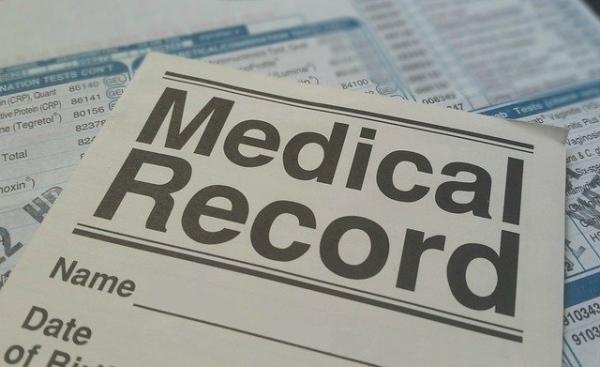The Meaningful Use programs were designed to nudge hospitals and physicians, with carrots and sticks, to digitizing medical records and other aspects of care. One key metric was that patients should have access to their medical records, from physician offices, outpatient facilities, and hospitals.
The particular meaningful use requirement at issue is the ability of a patient to access their hospital record and then "use" that information. Of the over 5,000 hospitals in the US, the researchers identified the 2,410 who had met that requirement during the period 2014 to 2016. If only half of the hospitals meeting this condition is not of great concern, understand that the hospitals were in compliance if one patient, accessed and used their record in any 90-day period. I think that is a fairly low bar.
The researchers created a dataset, including hospitals' structural characteristics, e.g., ownership, location, and their patient's sociodemographics based upon hospital-specific information as well as the county in which the hospital was located. Let's get the good news out of the way,
"Median performance in terms of the percentage of patients with the ability to access information was 93 percent in the first year of Medicare stage 2 attestation and 95 percent in the second and third years."
And now the bad,
"Median performance in terms of the percentage of patients with access who used information was 12 percent in the first year, 11 percent in the second, and 10 percent in the third."
It is at this point that the universes of policymakers and patients begin to diverge. Given that using health information is associated with "improved engagement, satisfaction, and convenience," patients should be using this information more – in a kind of "if you build it, they will come" sort of thinking. Without further consideration of this crucial assumption, the researchers slice and dice the data to show that larger health systems, more academic institutions, and non-profits did a better job with access and use. But with usage hovering around 10%, can a 2 or 3% improvement have any real meaning?
I particularly like two commentaries. First, making use of the hospital's non-profit status, and I remind you, non-profit reflects that they pay no taxes, not that they are unprofitable.
"Our findings that for-profit ownership was associated with higher access but lower use and odds of improving use over time are important and consistent with prior literature that suggests that hospitals' efforts to exchange data may be limited by profit motivations."
Limiting data exchange may well increase patient "lock-in" with a health system, much like using an iPhone makes it harder to switch to an Android. But with healthcare data, why is this the patient's job to transfer records?
But here is my favorite observation by the researchers showing just how far they have strayed from reality.
"Organizations can also use their market power to influence vendors to improve portal design to facilitate use for patients with low health literacy, technological literacy, or both."
The truth is that organizations cannot get vendors to design electronic health records that physicians willingly and successfully use. Physicians have been adamant in their near-universal disdain for these systems for years and are routinely ignored. If the purchasers of these systems are not important enough to be listened to and have their concerns acted upon, what chance do you think there is for patients?
The study is well-done, with reasonable conclusions, it is just that the assumption that patients will use their health records is flawed. First, what does use mean? If it merely to pass the records around their personal health network, then why is it solely a patient responsibility, what responsibility does the hospital bear?
Second, if the goal is for patients to be more engaged in their care, what about the hospital record is of specific value? Is it the nursing notes, the pages of orders, the laboratory or imaging results, or perhaps the musing of physicians that we call our daily notes and consultations. It seems to me that we have it backward, digital hospital records facilitate but do not initiate engagement. Patients may well want to reflect and review their hospital care, but providing access to the hospital record does not make the process easier. A written narrative, say the required discharge summary, will go a lot further to meeting those needs than digital access to the document dump that is a hospital record.
With only 10% of patients making use of this access and documents, I am reminded of the old saying, "the definition of insanity is doing the same thing over and over again and expecting a different result." The kind of engagement we need as patients and physicians do not scale by providing "access," it is the hard-won series of interactions, over time, between a patient and a consistent source of medical care.
Source: Are Patients Electronically Accessing Their Medical Records? Evidence From National Hospital Data Health Affairs DOI:10.1377/hlthaff.2018.05437




